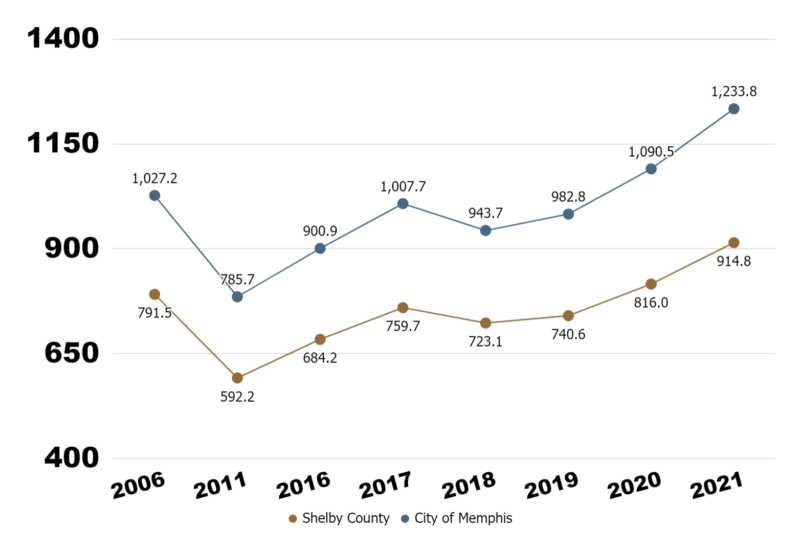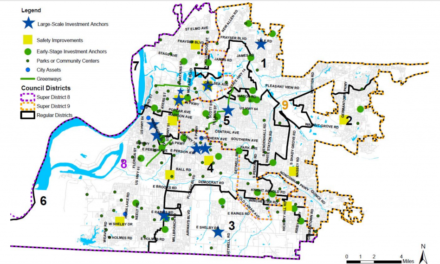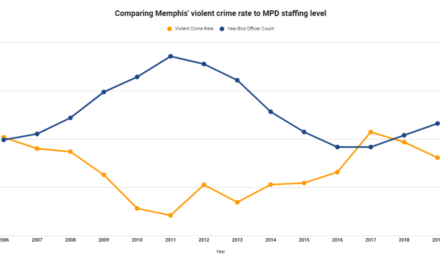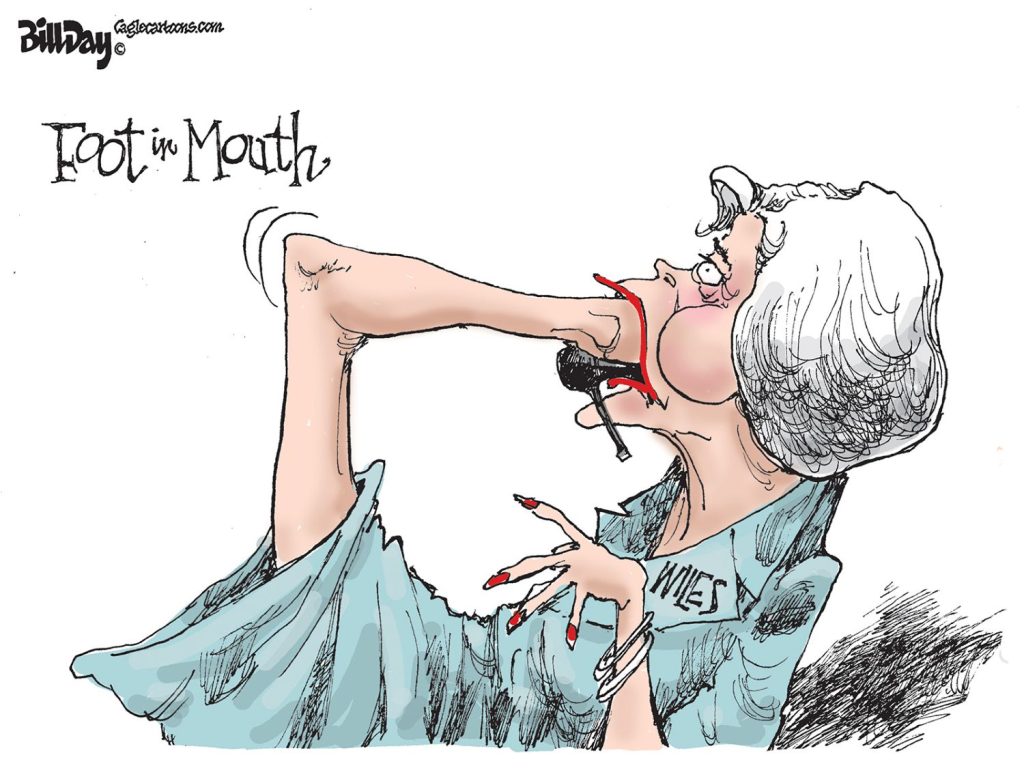 San Jose, California, was recently the first city in the U.S. to require gun owners to have insurance and pay an annual fee to support services for gun owners.
San Jose, California, was recently the first city in the U.S. to require gun owners to have insurance and pay an annual fee to support services for gun owners.
There’s really no reason that Memphis should not be the second.
We’re confident there would be some people who would say that such a law would be attacked in a lawsuit or in the state legislature. We should do it anyway.
It’s an innovative approach for sure, but if the Memphis violent crime rate says anything, this is time for innovation.
After all, Memphis police officers report that there are hundreds of teenagers riding around Memphis every night with assault weapons in their cars. The combination of teenage testosterone and deadly weapons is a toxic mix that explodes on the city’s streets almost nightly.
Wanted: Imagination
San Jose Mayor Sam Liccardo said: “We have spent nearly two years in deep discussion with legal experts throughout the country and here locally about how we could fashion an ordinance that would be constitutional, enforceable, and have the impact of reducing the risk of gun violence and gun harm in our community. Of course we know this is going to be a (legal) battle, but that’s the nature of gun regulation in this country.”
You’ll never find anything as dramatic or imaginative as gun insurance from the Memphis Shelby Crime Commission, caught in a time warp in which every five years it delivers up a plan that looks remarkably like the last one.
It’s always guaranteed to be heavy on longer sentences, tougher prosecutions, crackdowns on juveniles, and more enforcement, the same priorities that have done little to prevent the spiraling violent crime rate of recent years. While other cities innovate, we seem stuck in time.
Once, just once, it would be exciting to see the Crime Commission get on the record with something like the San Jose plan for gun insurance. However, that is unlikely to happen, because circular reasoning fallacy is clearly at play when the subject of crime reduction comes up with the group.
It’s ironic in a city as diverse as Memphis with a Democratic majority that crimefighting policy is distinctly Republican, as proven again in the Crime Commission’s latest Five-Year Safe Community Action Plan.
More of the Same
After 15 years of these many years of these copycat plans, it’s hard to remember that when they all began, the promise was to make “Memphis-Shelby County one of the safest communities of its size in the nation by 2011.” That just happens to be the year when major violent crimes climbed at historic rates, and by 2021, the violent crime rate was getting close to twice what was it was 10 years earlier.
Ten years after that bold goal, it’s pretty obvious that all the grand plans – rinse and repeat – have not worked, but rather than reconsider our strategies and shift gears, the mayor and the Crime Commission double down with more of the same, mixed with a heavy dose of Republican talking points.
It feels like after the mayor realized that the numbers weren’t getting better, his political strategy was to talk about the revolving door of Juvenile Court, low sentences, mandatory sentencing, and now, it’s about truth-in-sentencing.
He has every right to be frustrated. His campaign against former Mayor A C Wharton was based on his promise to reduce crime, and yet the major violent crime incidents have climbed on his watch. His first year in office saw a record number of murders, and the record has been broken several times since then, skyrocketing to 342 homicides last year.
How About a Real Citywide Debate?
All of these old school strategies for fighting crime become public policy here without any serious discussions, citywide debates, or the vetting of policy implications while so many of the ideas are based on mass incarceration strategies that disproportionately lock up African Americans.
What is missing here is a policy debate on questions like racial disparities in enforcement, prosecution, and sentencing, or about the fact that recidivism rates decline markedly with age, and because of it, lengthy prison sentences are an inefficient, and extremely costly way, to prevent crime. Or about the lack of funding and the benefits from community-based interventions.
Then too, there is the question of the mayor working with Republican leaders of the Tennessee Legislature to pursue the latest magic answer: truth-in-sentencing. Like the other big ideas, it ignores the fact that old age takes care of things that tough laws get credit for.
In addition, these laws often remove the ability of inmates to earn time off their sentences. That may seem like it’s not important, but it undermines true rehabilitation and erodes the incentive for good behavior in prison.
Magic Answers
That’s not even to mention that when truth-in-sentencing laws are combined with other Crime Commission and City Hall “tough on crime” policies, it becomes even more problematic in maintaining institutional discipline while making talk about rehabilitation a fiction.
Truth-in-sentencing laws are popular, especially with Republican politicians like Governor Larry Hogan of Maryland, who pushed for it as part of his answer to his state’s rising crime rate. The Baltimore Sun pointed out that research is conflicting on the law, but in the end, “judges need leeway to judge – they need the flexibility to suspend a portion of a sentence and otherwise modify punishments. And correctional officials need the ability to shave off some of a sentence to motivate good behavior in prison. But we need better understanding of what is going on with the incarceration and release of violent offenders. That would be real truth about sentencing.”
Meanwhile, back here, the latest Five-Year Safe Community Action Plan deals more with bromides than with research-based strategies to fight crime.
Its five-year reports continue to lack context, save for its monthly charts showing crime rates, and fails to answer the questions: What do we know about crime in Memphis, what kinds of crimes are being committed, who’s committing them, where are they committing them, and why they are being committed.
Many Unanswered Questions
Without more context, it is hard to measure what the Crime Commission means when it says it will “move the needle.”
And of course, it’s taken at face value (always) that we simply need more police but it doesn’t answer the questions: Is there an efficiency study on police, how many police cars show up at a minor traffic accident, how much equipment is an officer carrying, how are police deployed for maximum efficiency, how much time is spent sitting in cars, and so much more?
All in all, these five-year plans lack rigor and they lack imagination.
Before local politicians rush to Nashville to push their latest and greatest answer to crime prevention, there needs to be a consensus among the public that they have the right answer in the first place. The lack of a shared approach is a flaw that could easily be corrected.
But it of course depends on these vested interests really caring what the public thinks.
****
Join the Smart City Memphis blog on its Facebook page to read more posts, articles, and reports relevant to Memphis.





